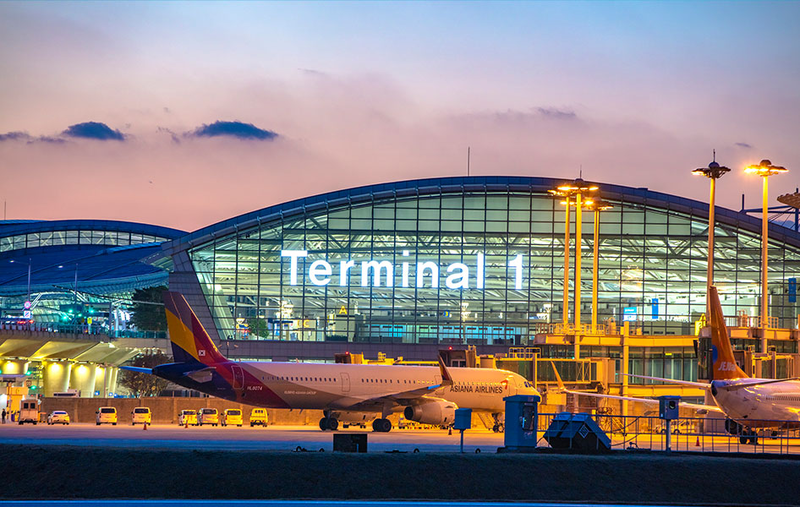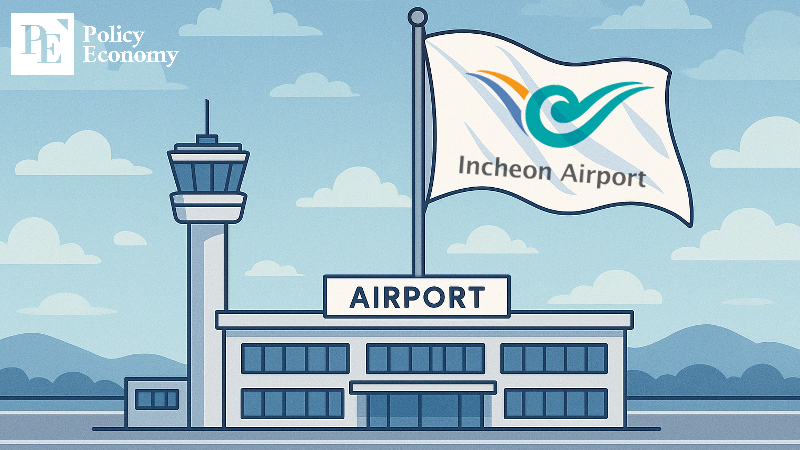“Let’s Expand Overseas” — Incheon International Airport Corporation Goes All-In to Win Montenegro Airport Operation Bid
Input
Changed
Incheon Airport Corporation Eyes Entry into European Airport Market Overseas Operations Thrive in Indonesia and Beyond Investment and Development Projects Underway in the Philippines and Uzbekistan

Incheon International Airport Corporation is going all out in the bidding race for the operating rights to an airport in Montenegro, Eastern Europe. The corporation has made a bold move by offering a higher fixed concession fee than its rival bidder, Corporación América Airports (CAAP), a Luxembourg–U.S. joint venture. If successful, this bid would significantly accelerate Incheon International Airport Corporation’s overseas expansion efforts, which have been ongoing since the early 2000s.
Incheon International Airport Corporation and CAAP Compete for Montenegro Airport Project
According to aviation industry sources on June 11, Incheon International Airport Corporation (IIAC) is ramping up its efforts to win the bid for the Montenegro Podgorica and Tivat Airport Development and Operation PPP (Public-Private Partnership) Project. The project involves expanding and operating Podgorica International Airport, the capital’s main airport, and Tivat International Airport, near the popular tourist destination of Kotor, under a 30-year concession. Both airports are currently operating beyond their annual capacity of 1 million passengers, making expansion essential.
IIAC’s main competitor is Corporación América Airports (CAAP), a Luxembourg–U.S. joint venture. The two bidders are employing markedly different strategies in a tight race. According to local Montenegrin media outlet Vijesti, which cited sources familiar with the bidding process, IIAC offered a fixed fee of USD 100 million and a variable concession of 35% of annual revenue. In contrast, CAAP proposed a slightly higher fixed fee of USD 101 million, but with a much lower variable share of 17%.
The evaluation of the airport concession bids is expected to conclude next month. The original assessment deadline, set for June 9, was recently extended. On June 9, Montenegrin Prime Minister Milojko Spajić announced on social media after a cabinet meeting that “the government unanimously accepted the bidding committee’s recommendation to extend the technical proposal review period by 30 days.” He added that the government, in cooperation with the International Finance Corporation (IFC) under the World Bank, would take more time to ensure the best decision in Montenegro’s national interest.
IIAC’s Global Push Since the 2000s
IIAC’s participation in the Montenegro airport bidding war is seen as a strategic move to further expand its global footprint. Since the opening of Incheon International Airport in 2001, IIAC has sought to diversify its revenue streams. Its first foray into overseas business came in 2009 when it won a USD 31.5 million airport consulting contract for the Erbil International Airport in Iraq.
For years, IIAC focused primarily on consulting services, transferring its operational expertise to overseas airports. However, things changed significantly in 2018, when IIAC was awarded the contract to operate Terminal 4 at Kuwait International Airport, becoming the first foreign entity to manage an international airport in Kuwait.
This success paved the way for a major breakthrough in 2021, when IIAC defeated major global airport operators, including Zurich Airport, to win a government-issued contract in Indonesia: the Hang Nadim International Airport (Batam Airport) Operation and Development Project. The USD 600 million PPP initiative involves IIAC taking a 30% equity stake in the airport operator and generating profits through a development-investment model.
Recognizing Batam’s strategic location, IIAC adopted a dual-track strategy to transform the airport into a key hub connecting Indonesia and ASEAN. This approach produced impressive results: Batam Airport's revenue, which was just USD 6.3 million at the time of acquisition, jumped to USD 1.54 million in 2023 and USD 17.0 million in 2024. Operating profits reached USD 2.20 million in 2023 and USD 2.35 million in 2024.
With a 30% equity stake in the airport, IIAC received approximately USD 430,000 in dividends last year alone—seven years ahead of the initially projected dividend timeline, originally expected around 2032.

Expanding Further into Southeast and Central Asia
Incheon International Airport Corporation (IIAC) continues to expand its overseas business portfolio actively. In 2024, IIAC secured its second investment-development project: the development and operation of Ninoy Aquino International Airport (NAIA) in Manila, Philippines, through a public-private partnership. Under the 25-year concession (2024–2049), the consortium—formed with San Miguel Corporation and other partners—will oversee the airport’s development, operation, and maintenance. IIAC holds a 10% equity stake, through which it will receive dividend income. The project is projected to generate approximately USD 26.6 billion in revenue over its duration.
In addition, in April, IIAC was named the preferred bidder for the Urgench Airport development project in Uzbekistan following an international competitive tender. This marks IIAC’s first entry into the Central Asian airport sector, with the project to be executed under a Build-Transfer-Operate (BTO) model, wherein a private developer constructs and operates the airport before transferring ownership.
If final negotiations—set to last three months—are successful, IIAC will invest approximately USD 145 million to construct a new passenger terminal with an annual capacity of 3 million travelers. IIAC will then operate the airport for 19 years, with actual operations expected to commence in 2029, following the completion of construction.
Because IIAC will retain full decision-making authority over the construction and operation phases, the project also allows for the involvement of South Korean construction and engineering firms. This structure not only enables strategic partnerships but is also expected to maximize the corporation's profitability.





















